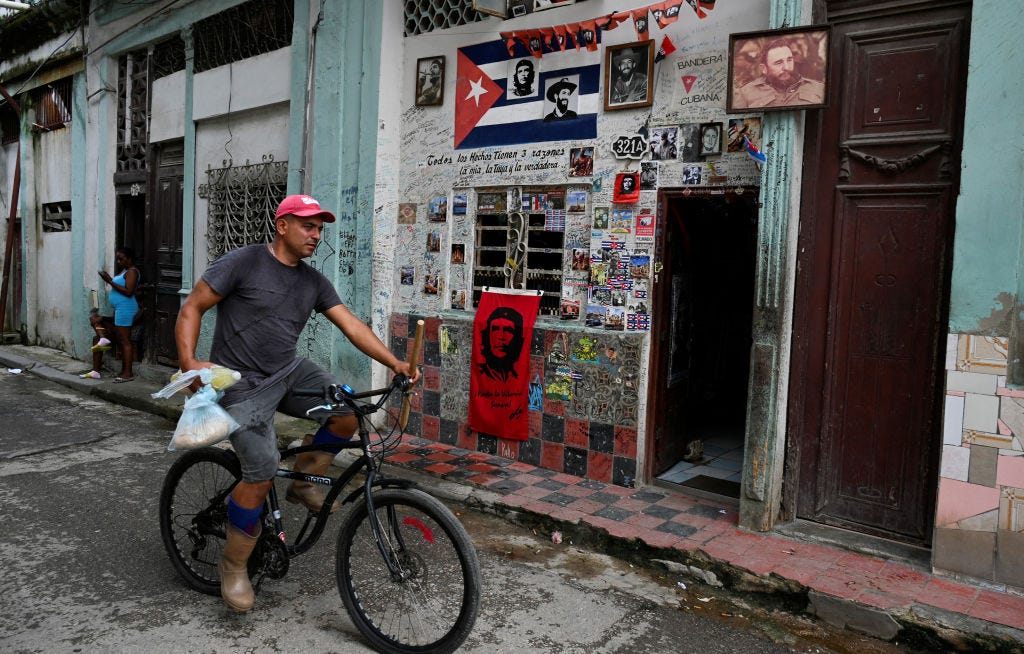
On August 6, 1960, Fidel Castro nationalized the Cuban Electric Company and sent his minions to celebrate in the streets of Havana. The company’s logo, a lightbulb-nosed stick figure nicknamed “Calixto Kilowatt,” was paraded around in a huge open coffin. I remember watching this revolutionary ritual on Cuban TV, a young kid frightened by the macabre imagery. Castro’s propaganda was never gentle or subtle.
Fast-forward to last Friday, when the electric grid in Cuba suffered a complete collapse. This is not an exaggeration or a metaphor. The entire island went dark—even Havana, which has been protected from the worst of the recent blackouts. It was a civilizational breakdown. The economy quite literally ground to a halt, as factories and stores were ordered closed by the government. From elementary schools to universities, the educational system was put on pause. Hospitals turned people away. For three days, Cuba, already tattered and abused, entered a special circle of hell reserved for the most mismanaged nations on earth.
The material catastrophe is self-evident and can be measured empirically. The depth of human suffering is impossible to gauge from a distance. Without refrigeration, food—always hard to obtain—was spoiled. Mothers lacked milk for their children. Without fans or air conditioners, everyone, including the very young and the very old, was exposed to Cuba’s blistering temperatures. Without elevators, the old and the sick who lived in apartments were forced to sleep outdoors, in the heat and among the mosquitoes. Without traffic signals, venturing to the streets became a death-defying nightmare. Without light, the human mind itself begins to shut down—the Cuban public, frozen in place by an incompetent and antiquated regime, sank to almost metaphysical levels of hopelessness.

I’m indirectly acquainted with a Cuban woman who developed acute bronchitis during the blackout. She went to the hospital but was sent home for an extraordinary reason: No antibiotics were to be found there. “I feel dissociated, I’m not well,” this woman had said of the blackouts even before her health crisis. “I think I’m entering into insanity.” Last I heard, she was getting worse. Many unfortunates, I suspect, are dying of neglect in silence and darkness.


